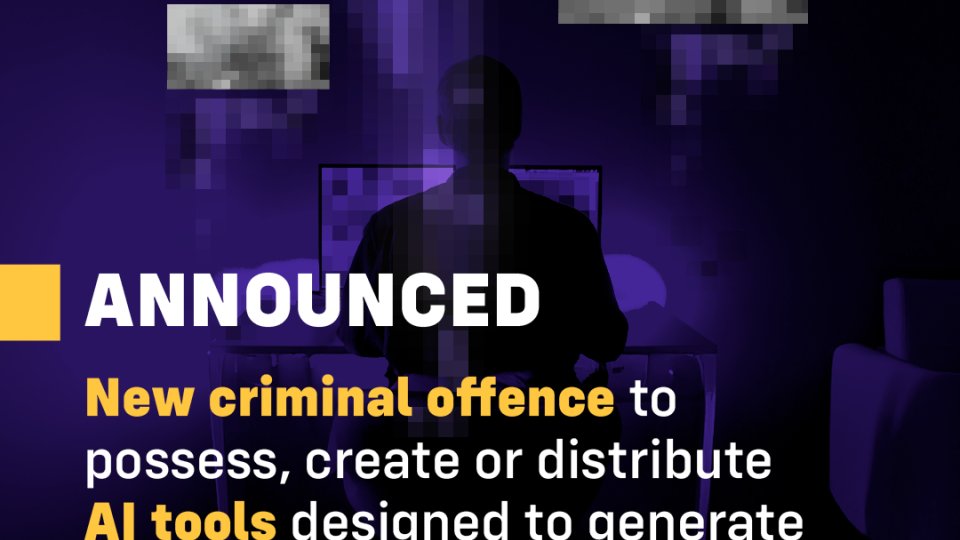The recent announcement by Home Secretary Yvette Cooper that the UK will be the first country to criminalise AI-generated child sexual abuse material (CSAM) is a landmark step forward in online child protection. Find out what has been included in the new AI sexual abuse offences below whilst we also emphasise the continued need for even stronger protections against the growing threat of AI-generated abuse.
A Critical Milestone in Child Protection
The emergence of artificial intelligence has brought both incredible advancements and alarming risks. The ability to generate explicit and harmful images of children using AI has become a significant and deeply disturbing issue. Perpetrators are using these tools to manipulate real-life images, generate new exploitative content, and even blackmail victims into further abuse.
The UK’s decision to make it illegal to possess, create, or distribute AI tools designed to generate CSAM is a decisive and necessary response. The inclusion of AI “paedophile manuals” in this legislation, punishable by up to three years in prison, sends a strong message that those seeking to exploit AI for these purposes will face serious consequences.
Further, the introduction of an offence targeting individuals who operate websites facilitating the distribution of child abuse material and grooming advice is a long-overdue measure. The provision empowering Border Force to compel suspected offenders to unlock digital devices is another important tool to prevent the spread of this material reaching across borders.
The Ongoing Need for Stronger Protections
While these new laws mark an essential step in combating AI-generated child sexual abuse material, there is still much work to be done. The online landscape is constantly evolving, and perpetrators will continue to find new ways to exploit emerging technologies.
One area requiring urgent attention is the protection against non-consensual intimate imagery (NCII), particularly as AI tools make it easier to generate deepfake content that can be used for blackmail, harassment, and psychological harm. While this current announcement addresses AI-generated CSAM, broader protections are still needed to ensure NCII material is classified as illegal. Strengthening laws around NCII and ensuring swifter action against offenders must remain a priority.
Moreover, enforcement of these new laws will be critical. The government must ensure law enforcement agencies have the resources and training to prosecute offenders effectively.
A Call for Continued Action
David Wright CBE (CEO of SWGfL) said: ‘’The introduction of these AI sexual abuse offences is a major victory in the fight to protect children from online harm. However, it must not be the final step. We urge policymakers to continue strengthening digital safety laws, ensuring they evolve alongside technological advancements and consistently keep one step ahead. We must remain proactive, closing loopholes that allow perpetrators to exploit AI while ensuring victims have the support they need.
The UK’s leadership in this area sets a precedent for the world. Now, we must build on this momentum and push for even greater protections against AI-facilitated abuse in all its forms. Every step forward is a step toward a safer digital world for children and adults alike.’’






